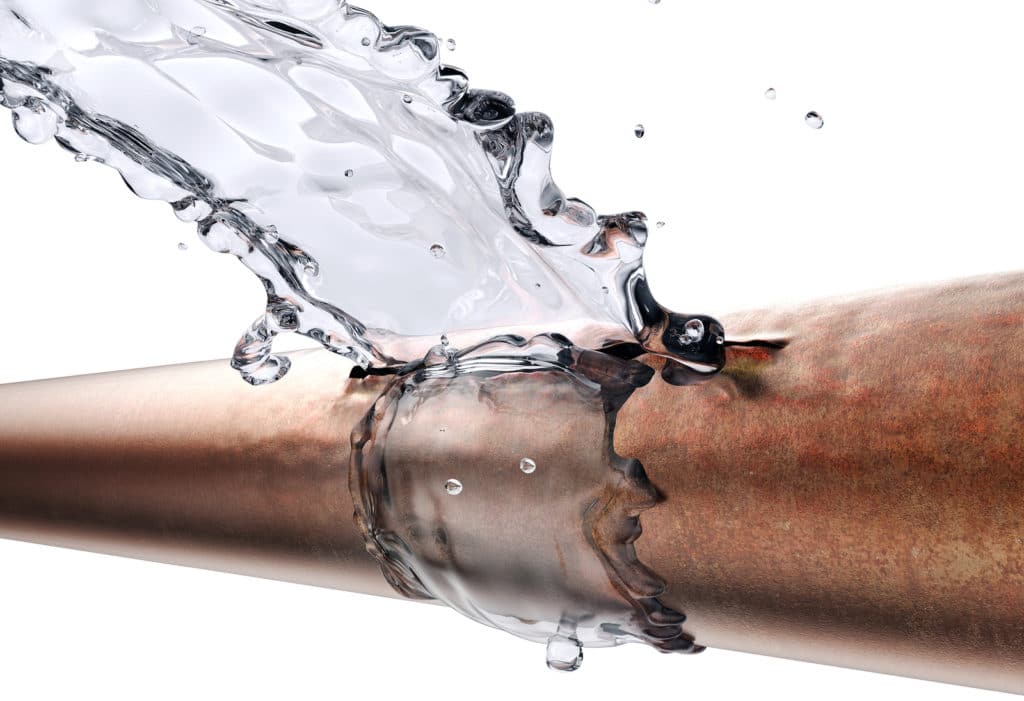Is It a Tenant’s Responsibility to Clean Gutters?
In most cases, the responsibility for repairing gutters lies with the property owner, managing agent,…
Read more24 hr Emergency Callout

Blog
Water pressure is the force that helps push the water through the pipes in your home so that it can come out your taps when you need it to. Water pressure is measured in ‘bars’ with one bar having enough force to raise the water in your pipes to a height of 10 metres. Wherever you live, we all need water pressure to help push the water through our pipes and into our homes and businesses.
Unfortunately, mains water pressure is not a constant and the demand for it during those busy early mornings or evening periods may reduce the water pressure available in your mains network. The amount of pressure depends on many things, including how high the service reservoir is above your home and how much water you are using on a regular basis. The height of your property can also affect your water pressure – for example, properties on the top of a hill might receive lower water pressure than properties at the bottom of the hill.

If you are not on a joint water system with your neighbours, the water flow to your property is individual to you and, therefore, the pressure might differ from your neighbours. However, if you are on a joint water supply, your neighbours will have the same water pressure as you and this will vary depending on how many people are running taps, baths, or washing machines at the same time.
If you have low water pressure from the mains supply in your home, you should contact your water company for advice. Low water pressure can cause water to flow extremely slowly out of taps and showers so that it takes a long time to fill a kettle or cistern. There are a number of causes for low water pressure, such as the demand for high amounts of water during certain times of day. Other common causes of low water pressure can include the following:
High water pressure can damage plumbing fixtures and this can cause flooding and a number of other problems, including:
The guaranteed standards scheme sets out the standards for mains water pressure around the countries, stating that companies should maintain a minimum water pressure to serve all relevant properties effectively. So, what pressure is mains water in the UK? In general, if your home outlets can deliver over 15 litres of water every minute, this is considered to be good water pressure. Anything below 15 litres of water every minute is considered to be low water pressure.
Do you know what the mains water pressure is like in your home? If you are unsure, it is possible to test your home’s water pressure (please note, however, that this is for properties with a single supply line). To test the water pressure:
If the water pressure in your home is too low, this could be due to numerous causes – the most common being a partially closed internal stop tap. If you have a problem with the water pressure in your home, the best thing to do is contact your water company. They will take flow measurements to help determine whether the problem lies with the company or within your property’s pipe lines.
Top tip: if you are dissatisfied with your company’s response response to your property’s water pressure problem, you can contact the Consumer Council for Water and they will provide you with advice for pursuing the matter.
If you are having problems with your home’s water pressure, there are steps water companies can take to improve pressure. Here at Coastal Drains, for example, if you are experiencing problems with your water mains pressure, we can renovate the water main by scraping away any corrosion and putting in a new pipe lining. What’s more, water companies can replace the water main with a larger one or they might choose to install pumps to help boost the water main pressure.
Water pressure will significantly affect the performance of your shower, the time it takes to run a bath, and filling the sink to wash the dishes. So, when your home has low water pressure, it can be extremely frustrating. While you can’t move your property to another location, there are steps you can take to help increase the water pressure in your home:
Call Coastal Drains Today
If you’ve been having problems with the water pressure in your home, it is possible that your property has damaged, corroding, or broken pipes. At Coastal Drains, we have experts available to help. As experts in all things drainage, we can analyse your drainage system and carry out any necessary drain repairs to improve the water pressure in your home. There is no need for you to struggle with low water pressure at home, our experts are here to help – call us today!